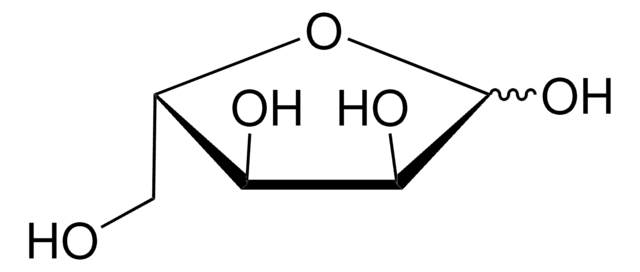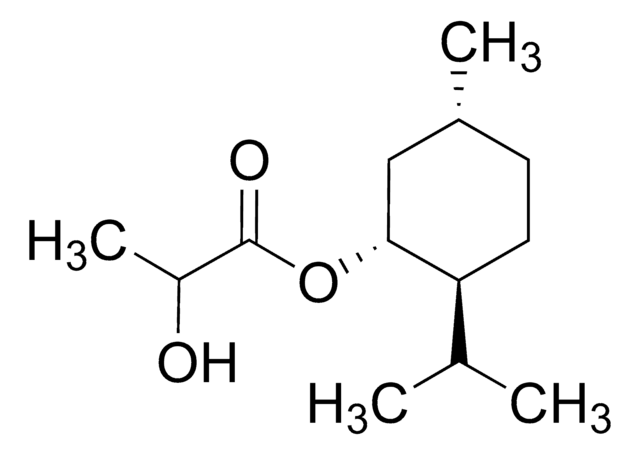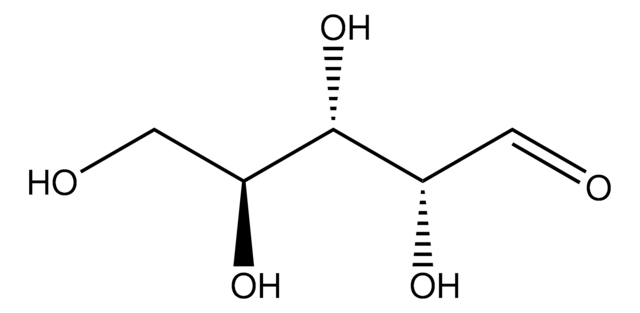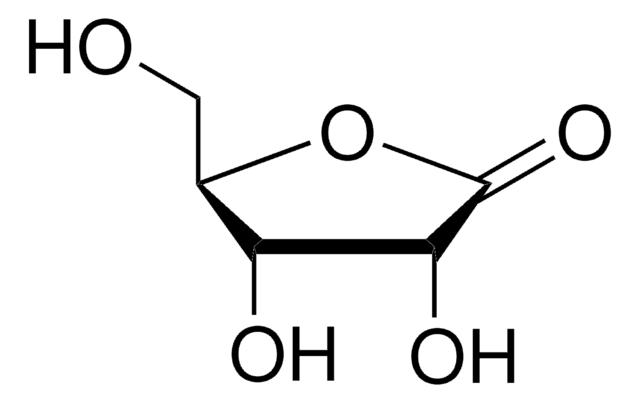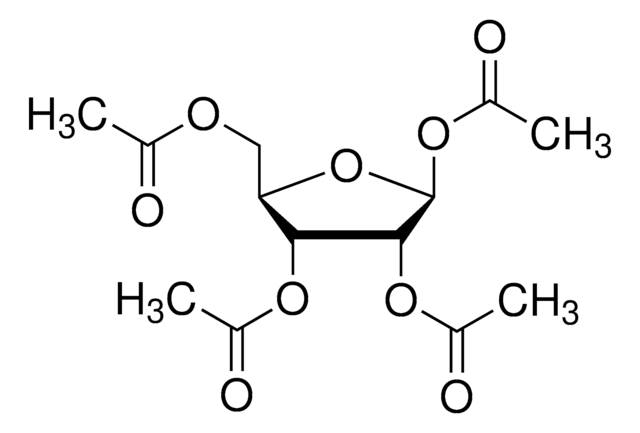About This Item
Recommended Products
biological source
synthetic
Quality Level
reg. compliance
FDA 21 CFR 117
Assay
≥98%
optical activity
[α]21/D −19.7°, c = 4 in H2O
mp
88-92 °C (lit.)
application(s)
flavors and fragrances
Documentation
see Safety & Documentation for available documents
food allergen
no known allergens
Organoleptic
odorless
SMILES string
OC[C@@H](O)[C@@H](O)[C@@H](O)C([H])=O
InChI
1S/C5H10O5/c6-1-3(8)5(10)4(9)2-7/h1,3-5,7-10H,2H2/t3-,4+,5-/m0/s1
InChI key
PYMYPHUHKUWMLA-LMVFSUKVSA-N
Looking for similar products? Visit Product Comparison Guide
Related Categories
General description
Application
- Protective effect of thymoquinone on glycation of human myoglobin induced by d-ribose.: This study investigates the protective effects of thymoquinone against d-ribose-induced glycation in human myoglobin, highlighting potential therapeutic applications in preventing protein glycation (Liu et al., 2023).
Disclaimer
Storage Class Code
11 - Combustible Solids
WGK
WGK 3
Flash Point(F)
Not applicable
Flash Point(C)
Not applicable
Personal Protective Equipment
Choose from one of the most recent versions:
Already Own This Product?
Find documentation for the products that you have recently purchased in the Document Library.
Customers Also Viewed
Protocols
Separation of Ribose, United States Pharmacopeia (USP) Reference Standard; Xylitol, analytical standard; Mannose, United States Pharmacopeia (USP) Reference Standard
Our team of scientists has experience in all areas of research including Life Science, Material Science, Chemical Synthesis, Chromatography, Analytical and many others.
Contact Technical Service

